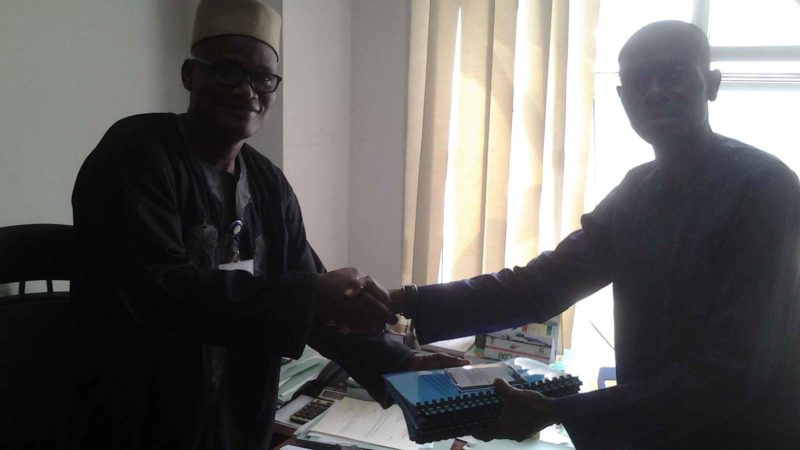In an effort to protect Nigerians from suffering unnecessarily from the effects of climate change, the Trade Union, civil society organisations (CSOs) and the academia have reviewed and mad an input into the draft Climate Change Framework Bill.

The draft bill was initiated by the House of Representatives Committee on Climate Change.
The review of the draft bill, which held in Abuja from Monday, July 17 to Tuesday, July 18, 2017, was supported by the Friedrich-Ebert-Stiftung (FES).
The aim of the review, it was gathered, is to ensure that climate change mitigation and adaptation strategies are mainstreamed across all public and private sectors of the country.
Speaking with EnviroNews in an interview, the Programme Manager of Friedrich-Ebert-Stiftung, Henry Okotie, noted that the review of the draft bill was to ensure that the trade unions and the CSOs who are the voice of the common people in the society make an input that transpates to the protection of the environment for the good of the people.
Commenting on the relevance of the Climate Change Bill to the common man, Okotie, who was representing the FES Resident Representative at the event, said: “It is about mitigation and adaptation so that people can know how to protect themselves against the adverse effects of climate change. This is because climate change is dynamic in the global system. It is inescapable.”
While reiterating that Nigeria currently needs a climate change law, he said: “You will agree with me that climate change is now of global concerns and it is therefore necessary that countries have a law backing up the activities for the adaptation and mitigation of climate change.
“So, if we don’t have a law backing it, it will seem as if we are groping in the dark. Apart from the United Nations Framework on Climate Change (UNFCCC), countries are supposed to have their own direction – a law guiding how climate change effect is being mitigated in their own country and the issue of adaptation also.”
Reacting to a question on what his organisation stands to benefit by supporting the review of the draft bill, Okotie described the FES as a socio-democratic foundation based on social justice.
His words: “We are a platform for people to achieve what will be beneficial to them. Our core mandate is to work directly with the labour movement.
“That is why when we got hold of this draft bill which is a good thing from the House Committee on Climate Change, we felt Trade Union and the CSOs should have their input because they are the political voice of the people to actually step down this law if it becomes an Act.”
While reacting to the statement credited to the Director General/CEO of the Nigerian Meteorological Agency (NiMet), Prof Sani Abubakar Mashi, that there is no need for the creation of a Climate Change Agency (CCA) as it will amount to a duplication of functions, Okotie said: “The NiMET is doing its bid and in our contribution that we are taking to the public hearing, we actually recommended that NiMET should be part of the technical advisory committee as stipulated in the Bill.
“We also recommended that it should be a member of the Council if need be. NiMET cannot do it all. Climate change is an umbrella for all the technical agencies to act. This because we are not talking about a sector, rather we are looking at the country and the world at large.”
Also speaking with EnviroNews, a climate change expert, Professor Emmanuel Oladipo, disclosed that the review of the draft bill was to make sure that those communities that are going to be vulnerable or are vulnerable already are properly identified and measures are put in place to address them in line with climate change.
According to him, the other aspect of the climate change that will make it relevant to the common person is that, with the approach, there will be some pool of resources available so that even if the impact of climate change occurs in some areas, there will be money to support the communities through National Emergency Management Agency (NEMA) and other relevant agencies which ideally before is not there, hence, they are have to go and seek the approval of the Executive Council.
“Like the type of money the government released for the series of floods that happened last week (N1.6 billion), it is just the executive powers that they used.
“But now with this proposed Bill, if the 2% Ecological Fund is available, the money will just be readily available, there is no need going back to the Federal Executive Council; rather, the Council on Climate Change can just make the money available to the communities or the people that are affected by the impact of the climate change.”
Reacting to the series of the floods that affect many parts of the country recently, Prof. Oladipo called on governments at all levels to go back to the drawing board to see what areas they have contravened in the original plans of their cities, communities and see how they can readjust.
“People are building on flood plains and they don’t want flood to affect them? It is not possible. Water must always find its level and every year there must be adequate water, if not we will all suffer,” he stressed.
The don, however, applauded the President Muhammadu Buhari-led government for recognising the effect of climate change and taking steps to combat it.
“That is why we are moving forward now in getting a lot of these issues being addressed at the national level including putting a law that will help to address the challenges of climate change more appropriately,” he explained.
By Hassan Danmaryam
